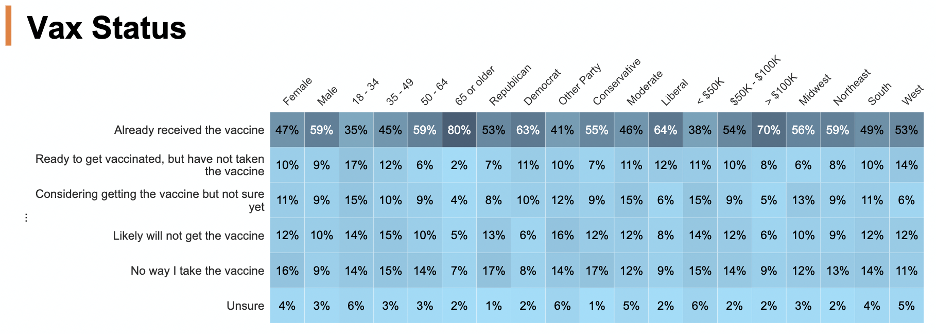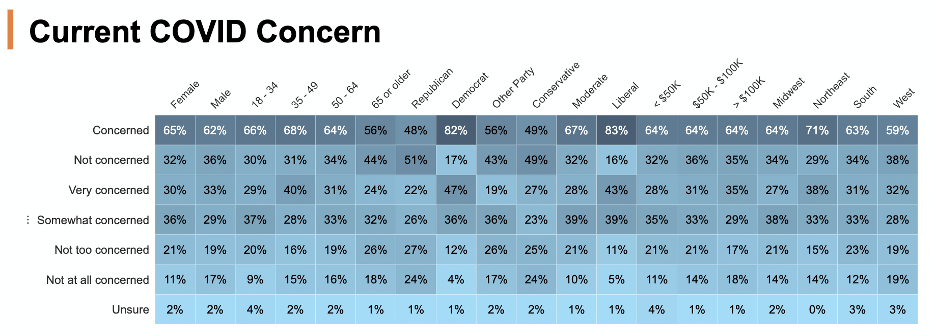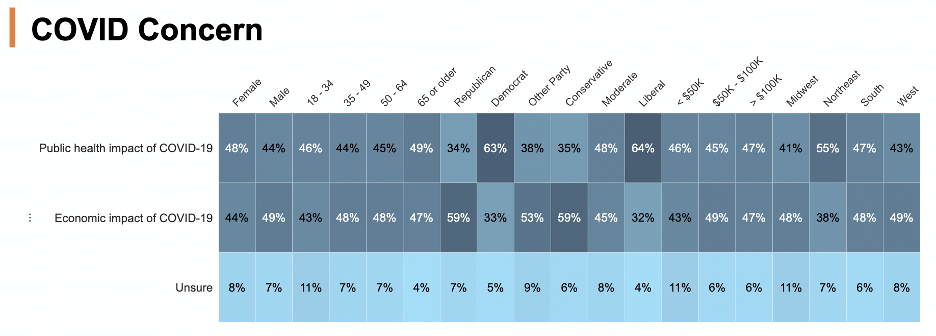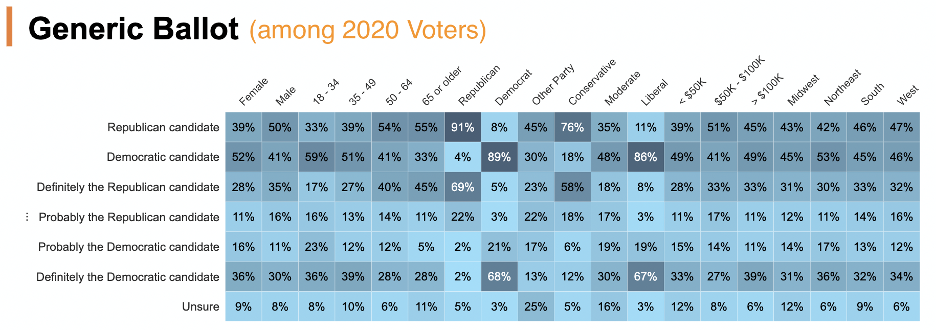Yeah, I know. You’re tired of hearing about COVID-19. Trust me, I am too–and so is the rest of America. But we still conducted a national survey on the topic along with a generic ballot (further down the article).
Based on our recent national survey of the general population, COVID-19 concern is on the downswing overall, and more Americans are starting to shift their focus to the economy. This is likely spurred on by successful vaccination efforts–over half of American adults have been vaccinated against COVID-19, and another 20% are ready for immunization or at least considering it.

Americans are ready to put the public health crisis in the past and focus on real solutions to offset the pandemic’s economic impact so we can get back to the bustling economy that America is proud of. So how does this sentiment play out when it comes to the electoral environment?


Although general concern about the pandemic is dipping, COVID-19 is still playing a major role in the politics of America. As more people are vaccinated and we transition to a place where the concern about economic impact outweighs the concern about public health impact, Republicans are in a good spot to tout their strong-on-the-economy values and scoop up on-the-fence or soft Dem voters who defaulted blue based on pandemic fallout in the last election.
And you don’t have to take our word for it–the proof is in the pudding of the generic ballot results. Republicans who voted for Biden in 2020 are now R+18 (54% R / 36% D), and among those who voted in the 2020 presidential election, the generic ballot is only D+1.4. We see some of the same trends as pre-pandemic American politics, such as the significant gender disparity in partisanship and younger voters trending Democratic, but new patterns are emerging as well.

Although younger voters do lean left, not all young 2020 Biden voters are married to the Democratic Party today. 12% of 2020 Biden supporters aged 18-34 and 10% of those aged 35-49 intend to support a Republican candidate in the upcoming Congressional elections in 2022. Women ages 35-49 are extremely persuadable: they are the most likely group to be undecided (26%) and only slightly lean Democrat (D+4). With a return to in-person schooling looming as a major 2022 campaign issue, Republicans are well-positioned to swing this group their way. More good news for GOP candidates in 2022: presidential election voters over the age of 50 lean strongly towards a generic Republican for Congress (R+17).
Though Biden won the 2020 presidential election, COVID-19 concern and fear over public health may have played a larger part in those decisions than partisan ideology.
The GOP is set to capitalize with those who aren’t totally sold on Democrats as the nation’s focus shifts to strengthening our economy–a Republican specialty.

